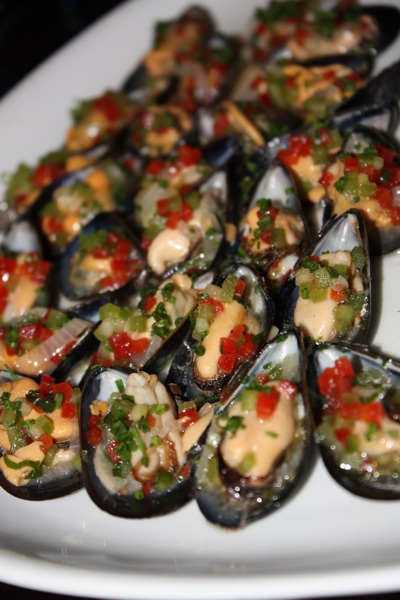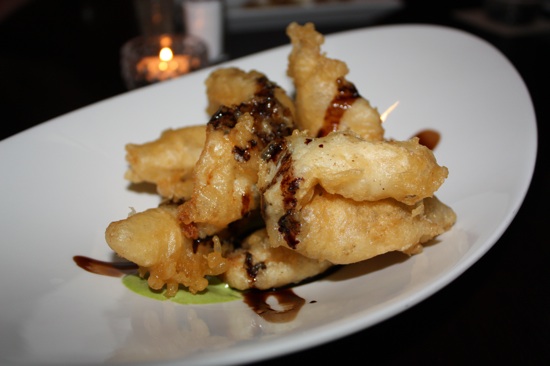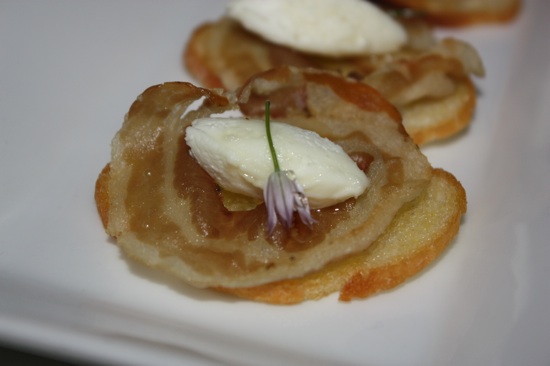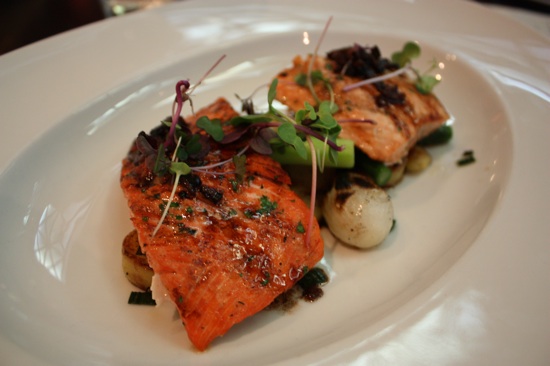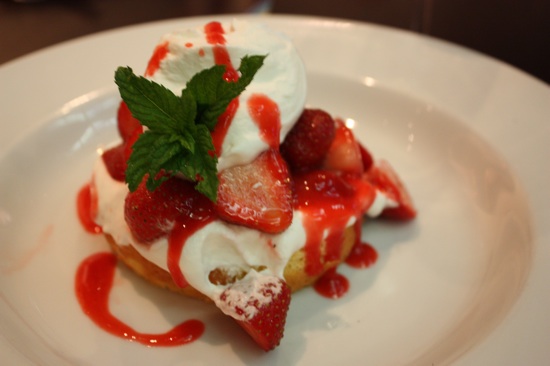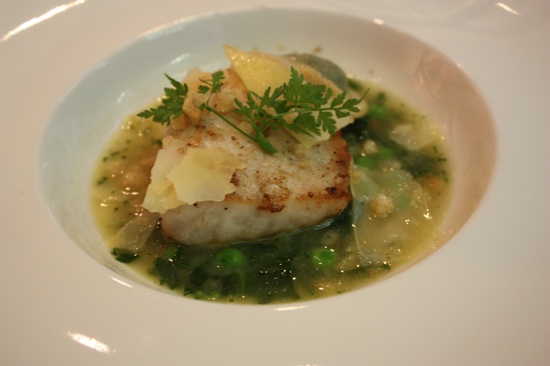Learn About Sustainable Seafood with Prairie Fire and the Shedd Aquarium
By Anthony Todd in Food on Jun 9, 2011 3:30PM
Last night, the Shedd Aquarium teamed up with Chefs Sarah Stegner and George Bumbaris of Prairie Fire to teach diners about sustainable seafood. While there is something a bit counter-intuitive about an aquarium teaching people how to eat their charges, this education is important, as consumers have a real ability to impact the health of the oceans. Best of all, you can learn while eating some darn good food. Join us for a belated World Oceans Day and learn what you can do.
Melanie Napoleon, Senior Director of Great Lakes Conservation, tied the menu and the day to the recent concern over the cleanup of the Chicago River. "Oceans belong to everybody, but are not necessarily cared for by everybody. We have to remember to care for our own ocean, the great lakes." Chicago, the only city in the region that doesn't disinfect sewage before dumping it into our water supply, is slowly making progress. While consumers can't directly affect that issue (aside from voting and letter-writing) we can affect the depopulation of the world's fish supply. Brooke Havlik, a sustainable seafood educator for the Shedd, told us how.
First, get a Right Bite card. Then, stick to the "best choices" it suggests. Some of our favorite fish are on the "best choices" list: mussels, oysters, striped bass and, a new favorite since last night, Yellow Perch from Lake Erie.
Avoid any salmon labeled "Atlantic." What that really means is "farmed" - wild Atlantic salmon is fished out. Farmed fish aren't always bad - but if they are carnivorous, that means other, wild fish are being taken to feed the farmed fish. It takes 3 pounds of fish to make 1 pound of salmon, which is not sustainable. Mussels, oysters and tilapia are vegetarians, and more suitable for farming.
Another tip? Try to go on a plastic "diet." Tons and tons of plastic, most of it single-use, are ending up in giant piles in the ocean, disrupting marine life. Just use the recycle bin, or bring a reusable water bottle to work, and you could be helping the health of our oceans.
Take a look at some of Chef Stegner's dishes, all created with sustainable seafood, in the gallery. This is one environmental issue where doing the right thing doesn't take much in the way of sacrifice.
